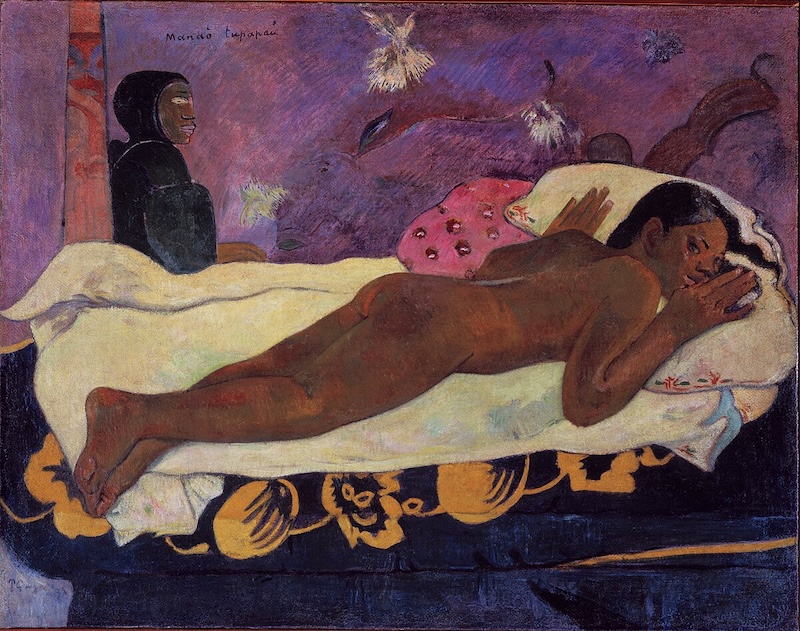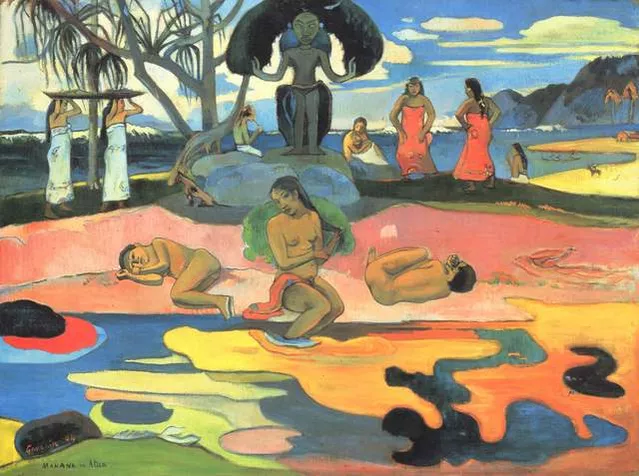
Manao tupapau
Paul Gauguin, 1892
They watch her watching them, the spirits.
Punish those disobedient claims of science,
for what is phosphorous against the poetry
of the dead? And what is wooden cross and thorn
against the meticulous lace of wisps torn
from the forest? The ventured night is never empty.
Why think or pray ourselves into defiance
when ghosts outlive and outfill us in drifts
of glows? An oil lamp to sleep by
and a lover’s weight will keep the fear at bay.
Dank with rum and thighs, he’ll nestle close
to the trembling girl who must have taken him
for an old invader at the door, loath
to rest, sword in hand. Morning, he’ll hum
as he paints, ask her to assume the darkness pose
to capture flesh as a wound that will not close,
that vibrant edict we bear but never chose.

The Day of God
Mahana no atua, Paul Gauguin (1894)
Some dances are best left to the mind,
or a painting in a bedroom, private
music for freed bodies. Spare us
the public arousal, unless none possess
what all can share. This tribal mess
defies modernity. The artist dares
to see the future in the past, a vatic
enterprise that pacifies Time.
Yet, for all his nature, he scurries back
to France to win praise or bear the lack
thereof. Baskets, flat as paintings, with gifts
to Hina—axis and arc. Flanked by drums
we infer from hips, the triad riddle of the sphinx
at her feet, mid-ground, as palette freedoms
baptize old waters into new eyes.
We must cross them, the corpulent dyes
that untaint the moment from vain apprise.

D’où venons-nous?
Paul Gauguin (1897-98)
The Blue Beyond, as stone-faced as the sky,
gets darker the more light it sheds.
We are feeling’s orphans, used to bleak
entreaties. The aureate arm that shields the squatter
and the bronze hands about a face tatter
regret from the guarded hush the meek
pearl within. If pain is as common as bread,
why not pluck, eat, then decry?
If we must gape from proscenium’s rim
to sway with stolen grief, yet our own
bury, then we can only gust our limbs
into gesture and drape our common
fate. Words, lift on dead wings?
Would a grand maker dabble in this garden?
Must we always go to where we’ve been?

